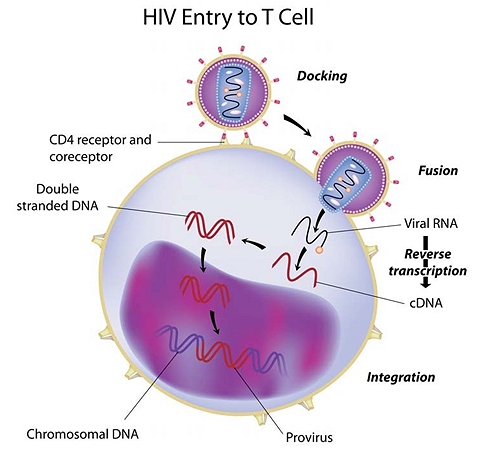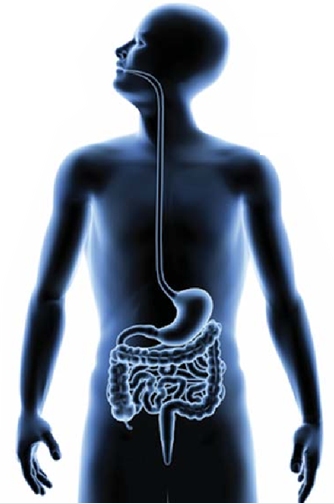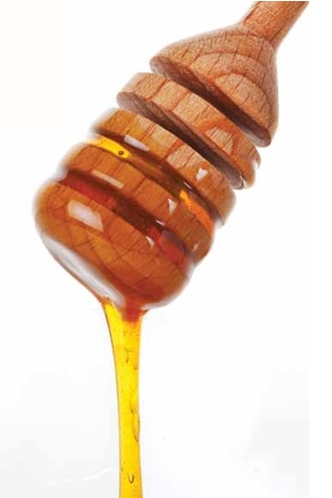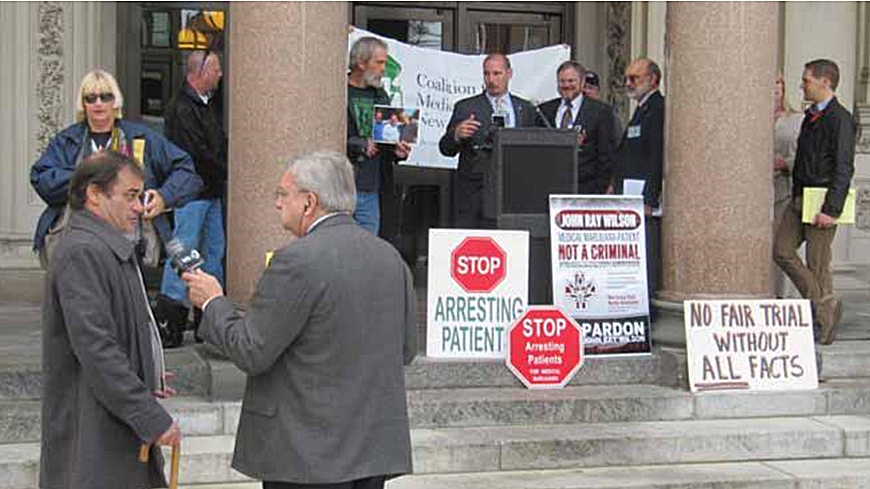
In True Jersey Style, Corporate Cannabis Trumps Compassionate Care
Mary Lou Smart www.medicalcannabisart.com
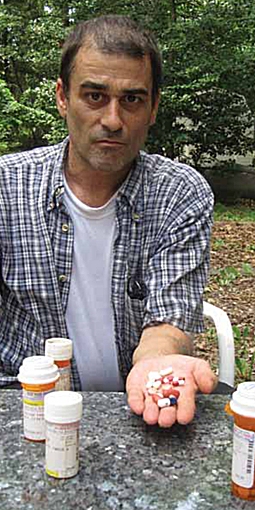
Stephen Cuspilich, 48, suffers from Crohn’s disease, aninflammatory disorder of the intestines thought to be an autoimmune disease.
Diagnosed in 1994, his case is particularly serious, as vomiting, abdominal pain, irritable bowel syndrome and myriad pharmaceutical prescriptions taken over the years have created many more problems such as pain, malnutrition from decreased food intake, bone deterioration and depression.
A recreational user for years, he decided a year ago that medical marijuana was the only way to proceed. He knew that cannabis improved his appetite, relieved stom-ach spasms and made him feel better. Over time he came to understand that with cannabis he could kick pain killers.
Before increasing his cannabis use for medicinal reasons, Cuspilich’s pill regimen was substantial. He was taking MP-6, or Mercaptopurine, an immunosuppressive drug used for cancer and also Crohn’s disease. Because the thinking is that Crohn’s sufferers endure a short-circuit-ed immune system that attacks the intestines, MP-6 goes after the immune system. Side effects include diarrhea, nausea, loss of appetite, fatigue, stomach pain, and severe allergic reactions. For whatever reason, while tak-ing MP-6, Cuspilich developed joint pain; he was given morphine and oxycodone.
Marijuana, known for anti-spasmodic and anti-inflam-matory benefit, helped with his stomach cramps. It slows his digestive tract enough for it to work. He found an additional benefit in that cannabis alleviated the pain, allowing him to get off of his daily dosage of 300 mil-ligrams of morphine and 60 milligrams of oxycodone.
Although the Crohn’s is not cured, he no longer needs the heavy narcotics. He takes medicine to stop stomach acid, which was rotting his teeth, and medicine to help with the irritable bowel syndrome. He regularly sees several physicians. Three of them agreed that the cannabis has been incredibly beneficial. He stopped seeing a fourth, a pain management physician who he learned was receiv-ing compensation for prescribing narcotics, who wanted him to continue taking morphine.
“I said to him, “Here, you can keep your pills. You won’t be seeing me in this office anymore, because I’m tired of taking pills, and I’m really tired of taking pills that make me loopy.””
Six years ago, after being arrested for the third time for cannabis possession, he took the matter into his own hands.
“I finally stood up and hired a lawyer, (Justin Loughry, certified criminal trial attorney, Loughry & Lindsay) and told him to fight it on the grounds of medical,” he said.
“He went in and fought it, and won based on the fact that I cannot take anti-inflammatories because they set off my Crohn’s disease. The judge actually apologized. She said that she was so sorry and she wished me luck.”
A lifelong resident of New Jersey, Cuspilich grew up in Burlington County. His children and grandchildren live in the Garden State. Following his court victory, he start-ed writing to and visiting legislators, and testifying in support of medical cannabis. He testified in front of the New Jersey Senate in 2009. Like many, his commitment to the cause of medical marijuana is personal. Unlike so many in government and the medical field, he is not receiving kickbacks and talking points from entrenched special interests hell bent on keeping knowledge medical cannabis hidden. His motives are simple; he does not want people in need of medical care to live in fear of arrest or have to move to marijuana-friendly states to be able to medicate with marijuana.
In the field of medical marijuana, the ranks of advocates are mushrooming alongside an incredible body of research stemming from in-depth worldwide studies. People are receiving an up close and personal education from friends, family members and neighbors receiving ongoing relief from whole plant therapy that’s been proven safe and effective for numerous conditions. Myths such as the gateway drug tear down the credibili-ty of the few continuing to use them. Not only does cannabis not lead anyone to a lifetime of addiction and debauchery, it has been shown in myriad studies to help wean addicts off of narcotics.
Not unlike the disastrous Alcohol Prohibition, the Cannabis Prohibition is a story of misguided government policy, greed, lies, and a complete failure of epic propor-tions. While polls continually show that an overwhelm-ing majority of the American population has no problem with medical cannabis, and more than half of Americans are fine with, even using, cannabis for relaxation, the Obama Administration used its first two years in office to greatly increase its funding for a failed drug war. In a country strapped for cash, the United States government, which tripled its military budget while fighting two wars over the past decade, is busy redirecting funds as it winds down its wars. Desperate to keep the military engine run-ning full force, it has now sent 4,500 CIA agents into Mexico to ramp up covert operations.
On President Obama’s watch, the federal government has targeted medical marijuana. Drug Enforcement Administration (DEA) arrests and dispensary raids have skyrocketed while the man who marketed himself as a change agent has been in the White House. After vowing to respect states’ rights in regards to state-approved med-ical cannabis programs, the federal government is threatening anyone in state government trying to enforce approved medical cannabis legislation. Through it all, lawyers and a black market thrive, and those who could benefit from whole plant therapy are given drugs.
Against the backdrop of the Obama Administration cav-ing to special interests, the true change agents, strong advocacy groups, push cash-strapped states in proactive, pro-economy directions.
In New Jersey, after years of negotiation, legislation is soon to be put into practice. Created to be the exact opposite of California and Colorado programs seen as a patchwork of slapped-together regulation catering to small business “potrepreneurs,” Jersey’s big business model features only six licenses granted to Alternative Treatment Centers (ATCs); each handling sales, testing and grow operations in-house. Conditions approved for medical cannabis are relatively few, permitted only after proving that each condition is resistant to conventional therapy, and include glaucoma, cancer, H.I.V./ A.I.Ds, multiple scleroses, seizure disorder, muscular dystrophy, A.L.S., Crohn’s and terminal illnesses where a doctor cer-tifies that the patient has less than 12 months to live.
ATC products are limited to raw plant material, lozenges and topical creams; edibles are prohibited.
New Jersey’s is the first state program to prohibit home cultivation. Many see this feature as cruel, forcing those with limited means to pay top dollar for something that patients can grow relatively inexpensively in other states with approved programs. Others see it as a means to regulate commerce while avoiding black market enterpris-es masked as home grow or caregiver practices.
Noel Palmer, Phd, a chemist and consultant skilled in chromatographic and spectroscopy methods, is listed as a consultant on the applications for Compassionate Sciences ATC, Inc., the company granted one of the two licenses awarded for southern New Jersey. He ran Montana Botanical Analysis, a research lab in Montana, until that state’s medical cannabis program was almost completely dismantled in 2011 by an anti-cannabis legis-lature.
“Considering what I saw in Montana, where it was essen-tially a free-for-all for awhile, I don’t know that I’d dis-agree with a regulated system like New Jersey’s,” he said.
One of the act’s features that he, and everyone else con-tacted, objects to is the 10 percent limit for THC poten-cy in ATC strains.
“That’s an arbitrary number that makes absolutely no sense,” Palmer said. “From a cultivation point of view it makes no sense; from a patient point of view it makes no sense; and from a scientific view it makes absolutely no sense. You don’t grow a plant to a particular percent. That’s just not the way it works. It’s going to create headaches for all of the companies trying to comply with the law. It’s also going to create headaches for the state of New Jersey. I have no idea of how they’d monitor some-thing like that or why they’d want to. The logistics of enforcing this arbitrary 10 percent number are going to be complicated.”
While the no-home-cultivation feature first appeared in the New Jersey legislation and is now showing up in other state medical cannabis models, the New Jersey model is not one that other states are adopting, accord-ing to Noah Mamber, legislative analyst with Marijuana Policy Project, an advocacy group in Washington, D.C. that works with state advocacy efforts in promoting medical cannabis legislation.
“One of the ways that we have made medical marijuana legislation more palatable to these legislators is agreeing to remove the home cultivation provision from the legis-lation in several states, especially states on the East Coast,” he wrote in an e-mail. “These legislators specifi-cally request that amendment, as they are concerned about the difficulty in regulating all marijuana produced in a program with home cultivation. In return for this
concession, these legislators are willing to guarantee that patients will have safe access to their medicine by setting up a complex, nuanced, state-regulated dispensary sys-tem that many of the earlier home-cultivation laws did not include.”
He listed several reasons that the New Jersey legislation is not patient-friendly, and therefore not one that MPP would recommend to legislators. He noted that New Jersey’s list of qualifying conditions is limited, not even including chronic pain, and that the two-ounces of cannabis allowed for a 30-day period might not be enough for many seriously ill patients, many of whom need to cook it into edible form, which consumes consid-erable product.
“Finally, New Jersey’s law, frustratingly does not include any sort of affirmative defense to protect patients while the program is getting up and running.”
Despite the efforts of New Jersey Governor Chris Christie, and those of his handpicked administrators in the Department of Health and Senior Services, in putting forward the most restrictive medical marijuana regula-tions in the country, a strong advocacy movement fights to keep the focus on the patient.
Ken Wolski, RN, is the executive director of the Coalition for Medical Marijuana NJ, Inc. (CMMNJ) – Web-site address is www.cmmnj.org – a volunteer effort that’s been working since 2003 to enact medical cannabis legislation in the state. Prior to co-founding CMMNJ, Wolski drafted the resolution in favor of medical mari-juana and presented it to the New Jersey branch of the American Nurses Association, which represents more than 100,000 registered nurses in the state. The associa-tion came out in support of medical marijuana in 2002 with the resolution urging the governor to move expedi-tiously to pass a law to protect New Jersey patients. The following year, the American Nurses Association, repre-senting more than three million registered nurses throughout the United States, came out in support.
“RNs have a unique position in the health care field,” he said. “We’re with our patients 24 hours a day, seven days a week, and one of the things that we are always trying to do is to evaluate the effectiveness of current therapy. We make recommendations about whether current ther-apy should be continued or discontinued or increased or decreased based on our own observations, using our own assessment techniques. We’re also traditionally advocates for patients. We go to bat for patients when they need our help. I think that we are in a unique position to real-ly evaluate the effectiveness of cannabis in patients who use marijuana therapy, and we do, and we come out wholeheartedly in support of it. “
The American College of Physicians, the American Academy of Family Physicians, the American Public Health Association and medical students within the American Medical Association have come out in support of medical cannabis. The American Medical Association has supported the rescheduling of cannabis under the Controlled Substances Act so that wide-scale clinical tri-als can deliver compassionate care to an incredibly large number of patients.
So why the delay?
“Marijuana represents a big threat to the pharmaceutical industry,” said Wolski. “The pharmaceutical industry is a major lobbyist in America.”
The Controlled Substances Act of 1970 was passed by Congress to control drug abuse and drug trafficking, not the practice of medicine. It has morphed into the forked tongue of federal government; its love song to special interests; and its justification for colossal military and law enforcement budgets.
In May 2011, Wolski met with New Jersey Attorney General Paula Dow.
“I told her that she should be vigorously defending the laws of the state of New Jersey, and not looking to the federal government for guidance on medical marijuana, because the federal government really has no credibility when it comes to medical marijuana,” he said. “Here they continue to insist that marijuana has no accepted medical uses in the United States and is unsafe even under medical supervision, when 16 states have passed laws recognizing marijuana’s medical usefulness. There are probably at least one million patients now who are engaging in medical marijuana use with the recommendations of their doctors.”
In New Jersey, Governor Christie, known as a law-and-order Republican, first used every trick in the book to stall the New Jersey Compassionate Use Medical Marijuana Act, which was signed into law in January 2010, on former Governor Jon Corzine’s last day in office. After throwing up roadblocks for a year and a half, Christie surprised many in July 2011 when he announced the need to “begin work immediately.” Referring to the threats by U.S. Attorneys on the issue and a June 29th memo from Deputy Attorney General James Cole to prosecutors mentioning “an increase in the scope of commercial cultivation, sale, distribution and use of marijuana for purported medical purposes,” Christie said that “the need to provide compassionate pain relief to these citizens of our state outweighs the risks that we are taking in moving forward with the pro-gram.”
Chris Goldstein, a radio personality, writer, and board member of CMMNJ and NJ and Philadelphia NORML chapters, is not thrilled with the legislation. He filed pub-lic records requests for all of the rejected and accepted ATC applications, and posted them on www.scribd.com/njcannabisdocs. The approved applica-tions reveal businesses to be run by professionals with advanced degrees and big titles from government, mar-keting, medical and scientific fields. New Jersey’s ATCs will operated under strict compliance requirements, and be much costlier to maintain than the small storefronts, cannabis cafes, and caregiver operations on the West Coast that heralded in the medical marijuana movement.
Goldstein does not see the approved ATMs as following the intent of the law that had been framed to provide compassionate care. He describes patients being treated more as human guinea pigs in a vague experiment, each assigned to one of six centers offering limited product at a high cost. He, and others contacted for this story, won-dered why anyone with easy access to better variety at a better price on the black market would go through the hassle of joining the experiment.
“The law is called the Compassionate Use Medical Marijuana Act, not the Scientific Research and Medical Experimentation of Cannabis Act,” he said. “What you’re seeing in New Jersey is the rise of Corporate Cannabis.”
Goldstein describes the management teams behind many of the winning applications as the types of administrators
and medical professionals that have shaped legislation in New Jersey forever, the same folks that supported the governor in his run for office.
“If you’re wondering what finally forced Christie’s hand, it certainly was not the decriminalization bill,” said Goldstein, referring to a bi-partisan decriminalization bill, Assembly Bill 4252, had been introduced just before Christie announced an urgent need to move forward with the medical marijuana program. “It’s more like all of his friends were asking, “When are we going to be get-ting the business here?””
With just six ATCs — two in the north, two in the south and two in the center — and few doctors signing up to provide recommendations in the face of strict guidelines, Goldstein finds estimates of a patient population — 8,000 projected to quickly grow to 30,000 — to be entirely suspect.
“The light at the end of the tunnel is that they have no clue of what they’re doing,” he said. “The regulations were left to Governor Chris Christie’s administration, and they did whatever they wanted. They shut the door on advocates and experts, and used a lot of lawyers to craft a draconian set of regulations that put the govern-ment in between the patient and the doctor. The winners are the owners of the six ATCs. We’ll see if they can pull it off.”
Goldstein finds hope in the act’s provisions that enable program modification.
“As an advocate who has worked for years to shape this law, I don’t keep working because I think it’s a done deal,” he said, adding, “I’m still very committed to mak-ing sure that this is the Compassionate Use Law and not the Corporate Research of Marijuana Law.”


